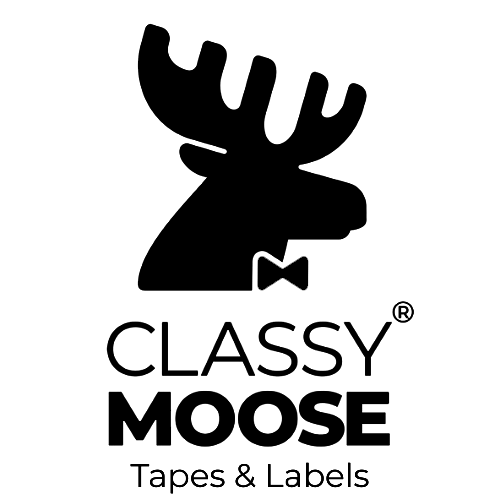
A Guide to the Different Types of Heat Resistant Tapes and Their Uses
When working in high-temperature environments, whether in industrial, automotive, electrical, or even crafting applications, heat resistant tape is an essential tool. These specialized tapes are designed to withstand extreme heat while maintaining adhesion, flexibility, and durability.
In this blog post, we’ll explore the main types of heat resistant tapes, their properties, and where they're most commonly used.
1. High Temperature Masking Tape
Temperature Resistance: Typically 300°F to 400°F (149°C to 204°C)
Common Uses: Powder coating, automotive painting, soldering, anodizing
High temperature masking tape is specially formulated to resist heat during processes like powder coating or high-temp paint baking. It’s made from materials like crepe paper or polyester, often with silicone or rubber-based adhesives, ensuring clean removal without leaving residue.
Key Benefits:
-
Clean removal after baking or curing
-
Good conformability and edge definition
-
Resistant to solvents and chemicals
2. Polyester Tape
Temperature Resistance: Up to 400°F (204°C)
Common Uses: Powder coating, electrical insulation, splicing, plating
Polyester tape is a strong, thin tape with a smooth surface and excellent dimensional stability. It's often used in applications that require precision masking, like powder coating and plating. It typically features a silicone adhesive that can withstand high temperatures while providing clean removal.
Key Benefits:
-
Smooth and strong surface
-
Tear and puncture resistant
-
Leaves no residue after removal
-
Often available in bright colors for visibility
3. Kapton® Tape (Polyimide Tape)
Temperature Resistance: Up to 500°F (260°C)
Common Uses: Electronics, 3D printing, circuit board masking, aerospace
Kapton® tape, made from polyimide film, is one of the most widely recognized high-temperature tapes. It offers excellent electrical insulation and thermal stability, making it ideal for masking PCBs during soldering or protecting sensitive components from heat exposure.
Key Benefits:
-
Thin and lightweight
-
Chemically resistant
-
Leaves minimal residue
4. Fiberglass Cloth Tape
Temperature Resistance: Up to 550°F (288°C), some types up to 1000°F (538°C)
Common Uses: HVAC, insulation wrapping, welding protection
Reinforced with fiberglass fabric, this tape is highly durable and can handle extreme temperatures and rough environments. It’s often coated with silicone or aluminum for additional insulation and heat reflectivity.
Key Benefits:
-
High tensile strength
-
Flame retardant
-
Good abrasion resistance
5. Silicone Self-Fusing Tape
Temperature Resistance: -65°F to 500°F (-54°C to 260°C)
Common Uses: Emergency repairs, wire bundling, sealing, plumbing
Silicone self-fusing tape doesn't have a traditional adhesive. Instead, it bonds to itself when stretched and wrapped. It’s great for temporary or permanent high-heat repairs where adhesives might fail.
Key Benefits:
-
Waterproof and airtight seal
-
No residue
-
Excellent electrical insulation
6. Aluminum Foil Tape
Temperature Resistance: Up to 600°F (315°C)
Common Uses: HVAC duct sealing, heat shielding, reflective insulation
This type of tape uses a metallic foil backing, often combined with an acrylic or silicone adhesive. It reflects heat, making it ideal for insulation and sealing applications.
Key Benefits:
-
Reflects heat and light
-
UV and moisture resistant
-
High thermal conductivity
7. PTFE (Teflon) Tape
Temperature Resistance: Up to 500°F (260°C)
Common Uses: Heat sealing machines, mold release, non-stick surfaces
PTFE-coated tapes offer non-stick surfaces that can endure high temperatures. They're frequently used in packaging and sealing machinery, as well as composite molding.
Key Benefits:
-
Non-stick and chemical-resistant
-
Low friction surface
-
Easy to clean
Choosing the Right Heat Resistant Tape
When selecting the right tape, consider the following factors:
-
Maximum temperature exposure
-
Adhesion requirements
-
Electrical insulation needs
-
Mechanical stress and environment
-
Removability and residue
Each type of tape offers unique advantages based on its material composition. Always consult the manufacturer's specifications for your particular application. For more information, don't hesitate to contact Classy Moose to special order any types of heat resistant tape with their competitive prices.
Heat resistant tapes play a critical role in industries where high temperatures are the norm. Whether you're an engineer, technician, or DIY enthusiast, understanding the different types can help you choose the best one for your project. From polyimide and fiberglass to silicone, masking, polyester, and foil tapes, there's a heat-tolerant solution for every job.
